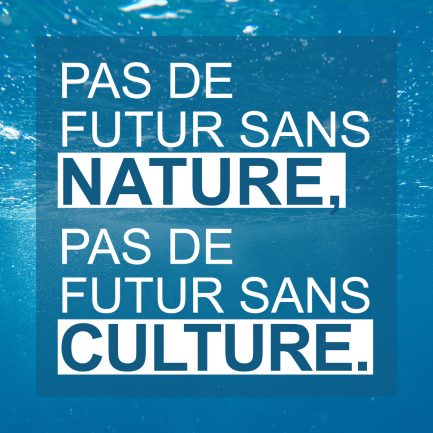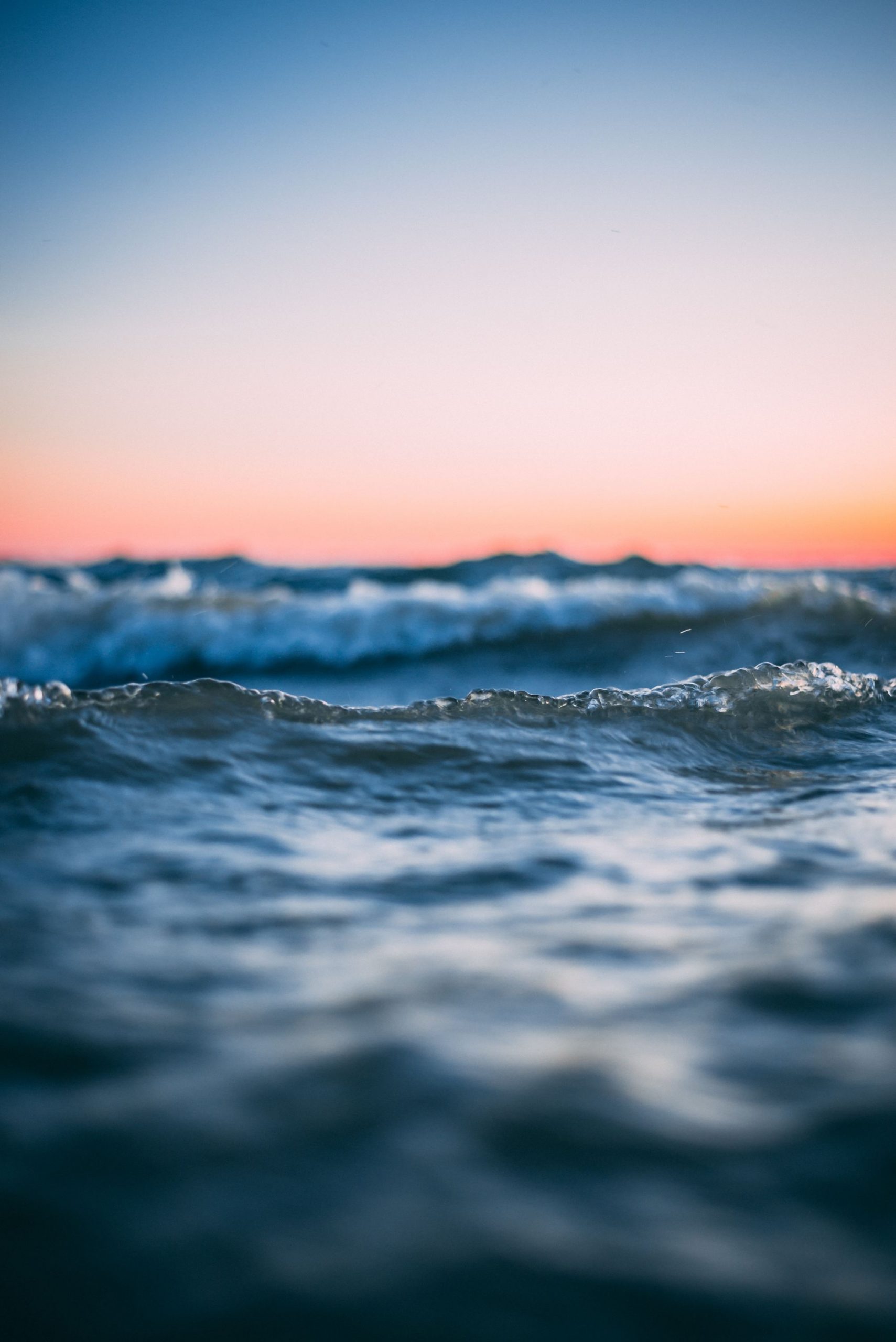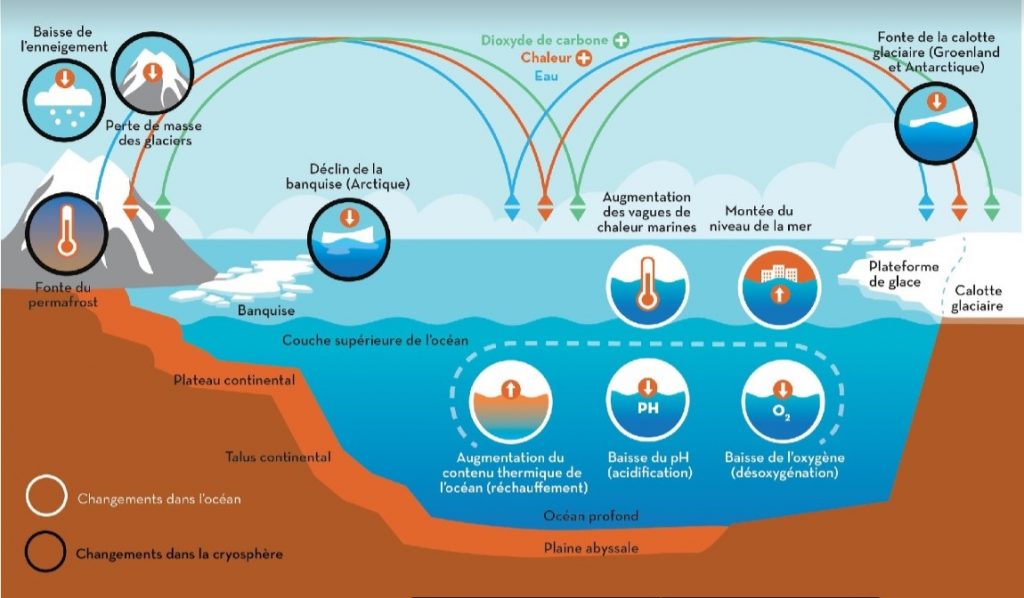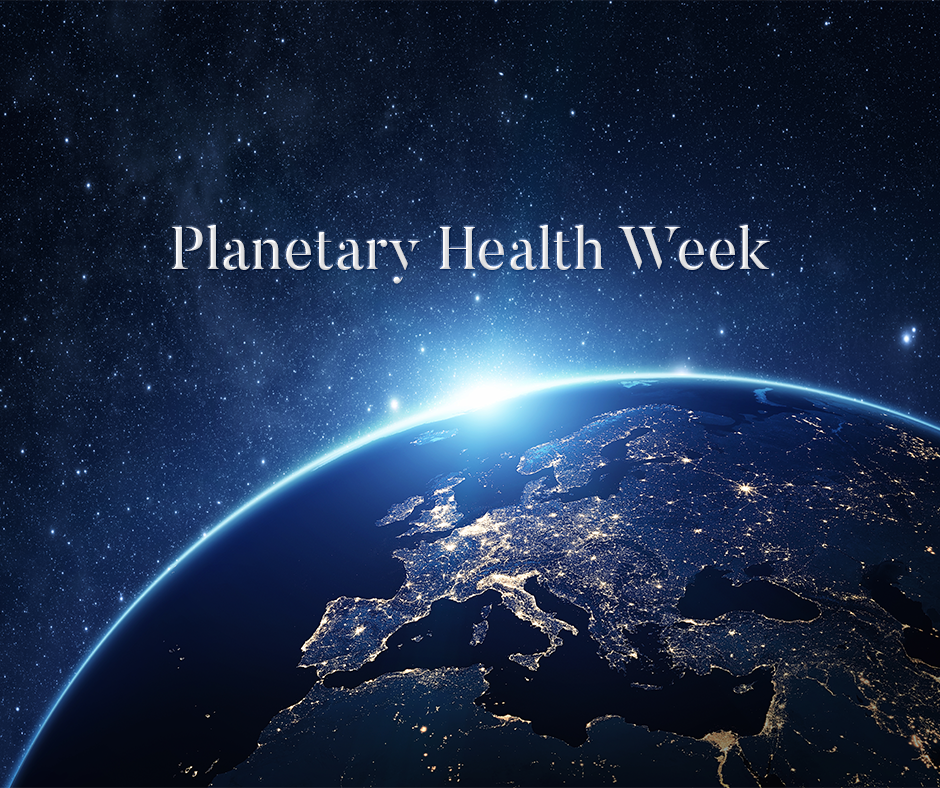
The Maison de l’Océan hosts the 2024 Common Good Summit
- Reading time : 2min
- 3 July 2024
The Common Good Summit 2024 (or Summit of the Common Good) was held on June 13 at the Maison de l’Océan in Paris. This flagship event brought together experts, financiers and activists to discuss finance and its capacity to respond to the urgency of the climate transition.
The summit featured renowned speakers such as Ulrich Hege (Toulouse School of Economics), Rémi Roux (Ethiquable), Gianmarco Monsellato (Deloitte France and Francophone Africa), Nathalie Tubiana (Caisse des Dépôts) and Lucie Pinson (Reclaim Finance). These experts shared their perspectives on the challenges and opportunities of financing the ecological transition.
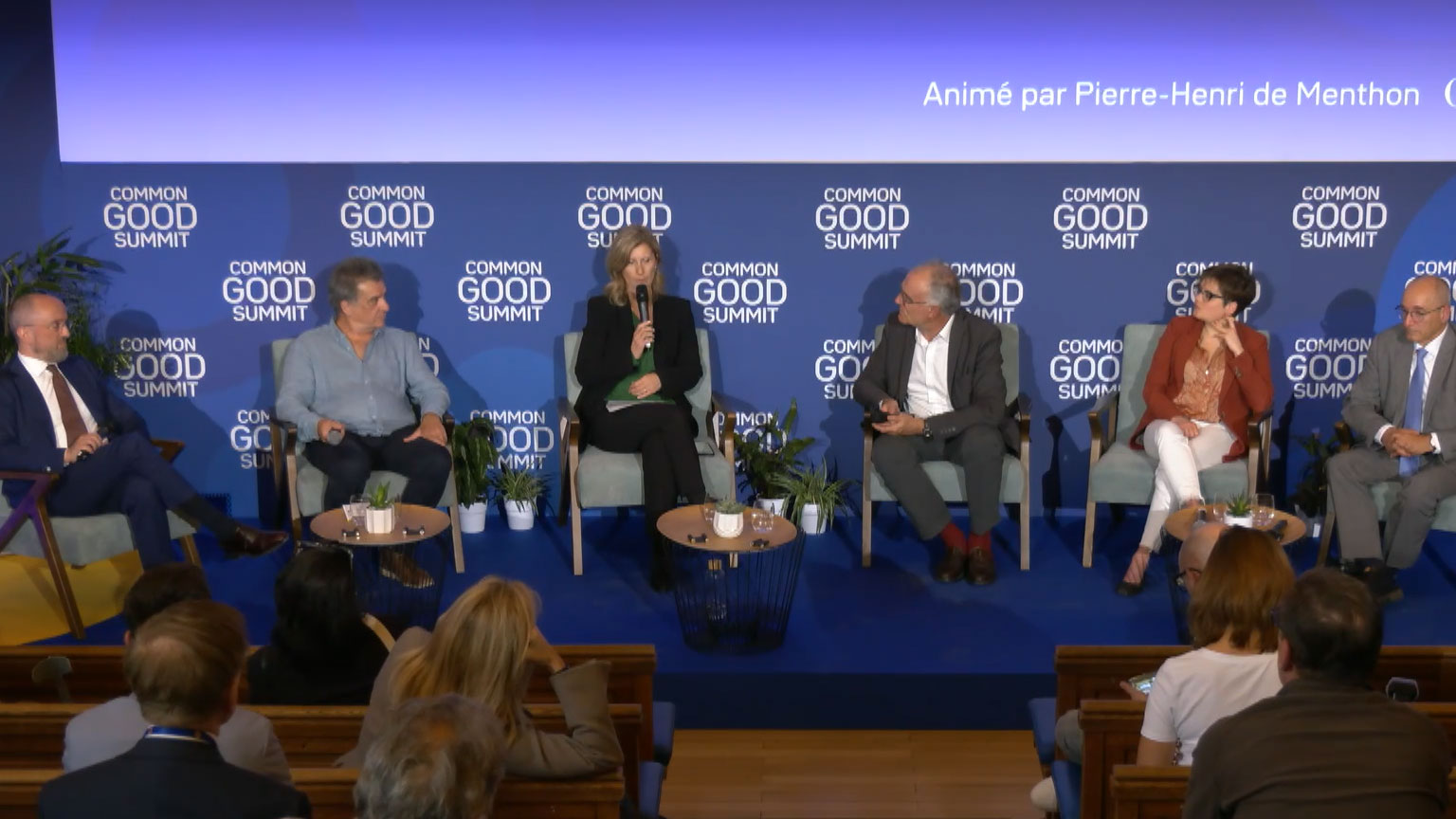
Crucial discussions on climate transition and sustainable finance
The discussions highlighted the many obstacles that finance must overcome to effectively support the ecological transition. Technological risks and political uncertainties were identified as major obstacles. Gianmarco Monsellato also spoke of the importance of European regulations, in particular the CSRD, in creating a common, transparent framework for financial players. These regulations aim to combat greenwashing and promote sustainable practices.
While all participants stressed the need for a long-term vision for sustainable finance, the commitment of Caisse des Dépôts, which has already mobilized billions of euros for the energy transition, was cited as an example to follow.
An emblematic venue for a major summit
The Common Good Summit 2024 at the Maison de l’Océan was a key moment for assessing the state of finance in the face of climate change.. Discussions highlighted both the challenges and the opportunities for building a more sustainable and responsible financial sector. For a better future, it is essential that financial players adopt an approach that prioritizes sustainability over immediate profitability.
A view supported by Robert Calcagno, General Manager of theMonaco Oceanographic Institute, who, in the run-up to the summit an interview given to challenges.fr that our approach to the ocean remains archaic, similar to that of the Neolithic period; In particular, it calls for a transformation towards a more sustainable “culture of the sea”, and also highlights the need to include economic and financial players in ocean protection efforts to maximize the positive impact.
Children's corner
- Home
- Categories
- News from Maison des Océans - Paris
EVEN IN CONFINEMENT, LET'S LIVE THE OCEAN!
We look forward to seeing you every day on our social networks and on our website to help you keep your children entertained!
Together #LiveLocean through anecdotes, underwater discoveries and oceanographic stories…
NERINE'S TALE EPISODE 2
The Oceanographic Institute of Monaco invites you to follow the adventures of the little turtle Nérine through several episodes punctuated by DIY workshops (Do It Yourself) so that you and your child can reproduce the story in your living room with everyday objects.
The game of 7 mistakes
Can you find the 7 mistakes in the following pictures?
Choose one of the original images on the right and keep your eyes open! The answers are given in the links below.
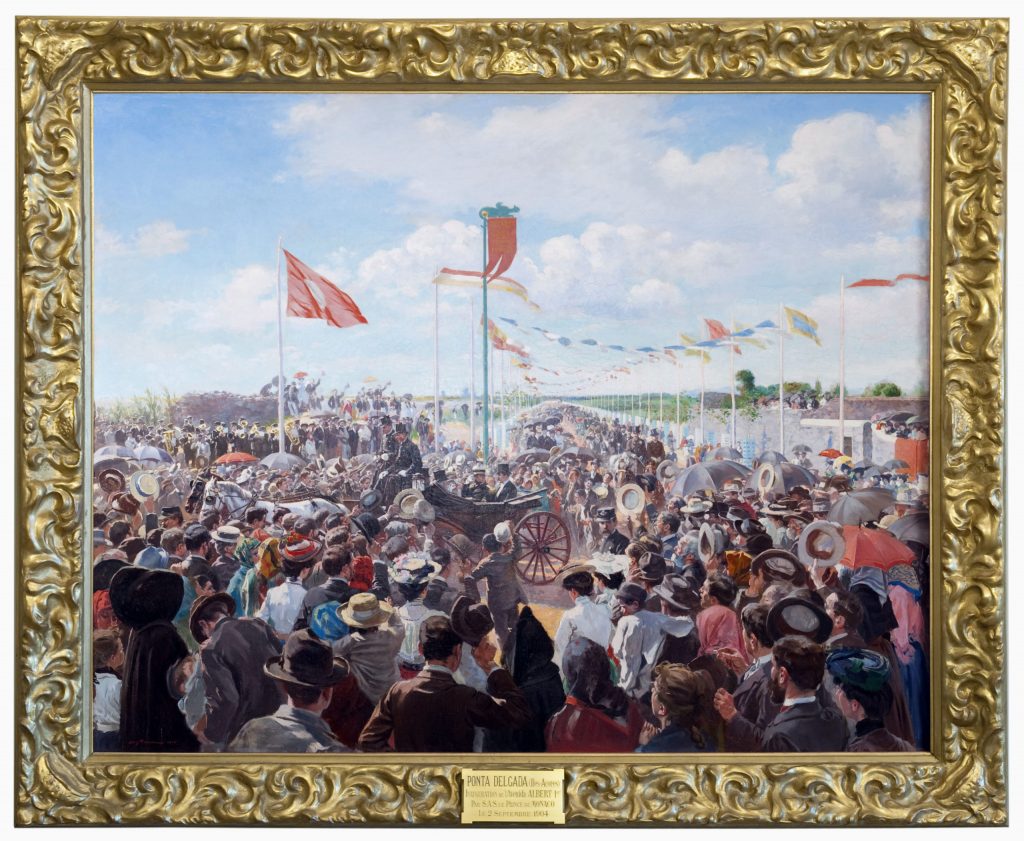
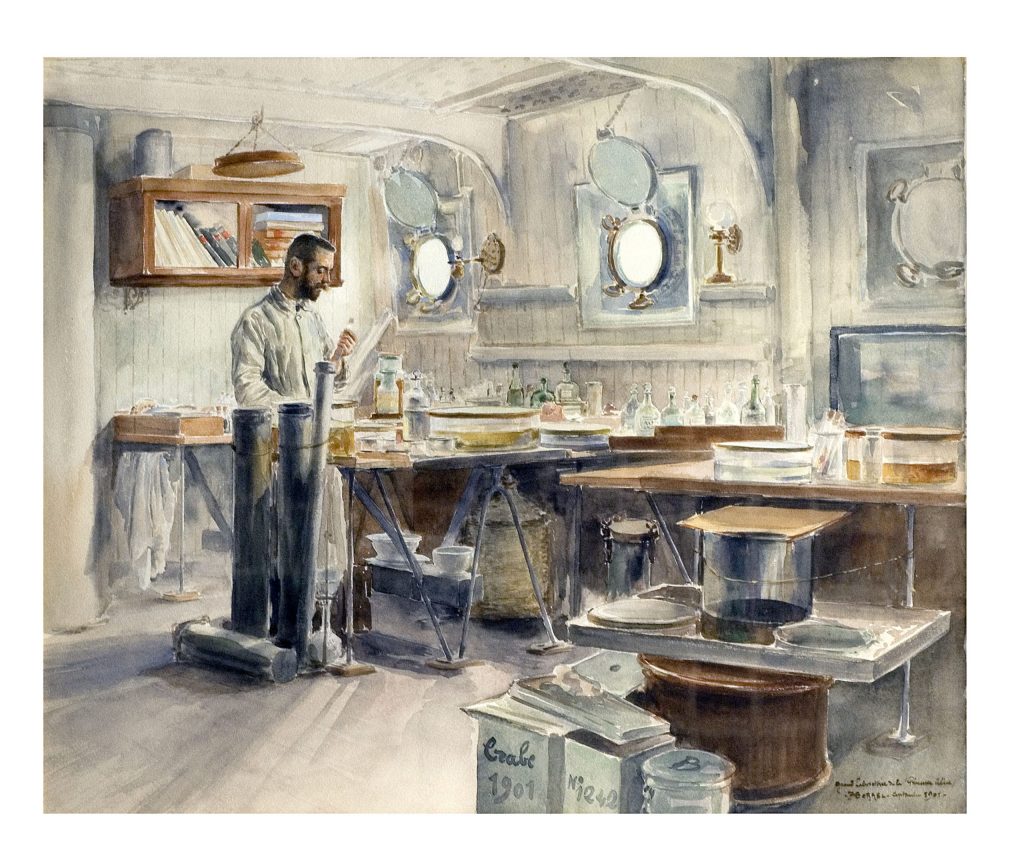
WORKSHOP "D.I.Y. the tale of nerin
The Oceanographic Institute of Monaco invites you to follow the adventures of the little turtle Nerine through several episodes punctuated by DIY (Do It Yourself) so that you and your child can reproduce thestory in your living room with everyday objects.
In the form of a participatory tale, your child will discover with Nérine the life cycle of a sea turtle, from birth to adulthood, the marine ecosystem and the environmental issues that threaten them. As it travels through the ocean currents, several animals will cross the path of our little loggerhead turtle. Be careful! Nerin’s journey will not be easy. She will have to face several obstacles throughout her life…
It is up to you
And to win tickets to the museum’s reopening, share your best work on Instagram (@oceanomonaco) and answer the questions below:
- What are the different materials used to create the characters in this story?
- Why do sea turtles lay their eggs at sunset?
- How do they return to the sea after laying their eggs?
PéDAGO files: the food network
Discover the diets of seaweed, turtles, mussels, octopus and many other marine species. Learn who eats whom by reconstructing the Mediterranean food web with the Appendix. Get your glue and pencils!
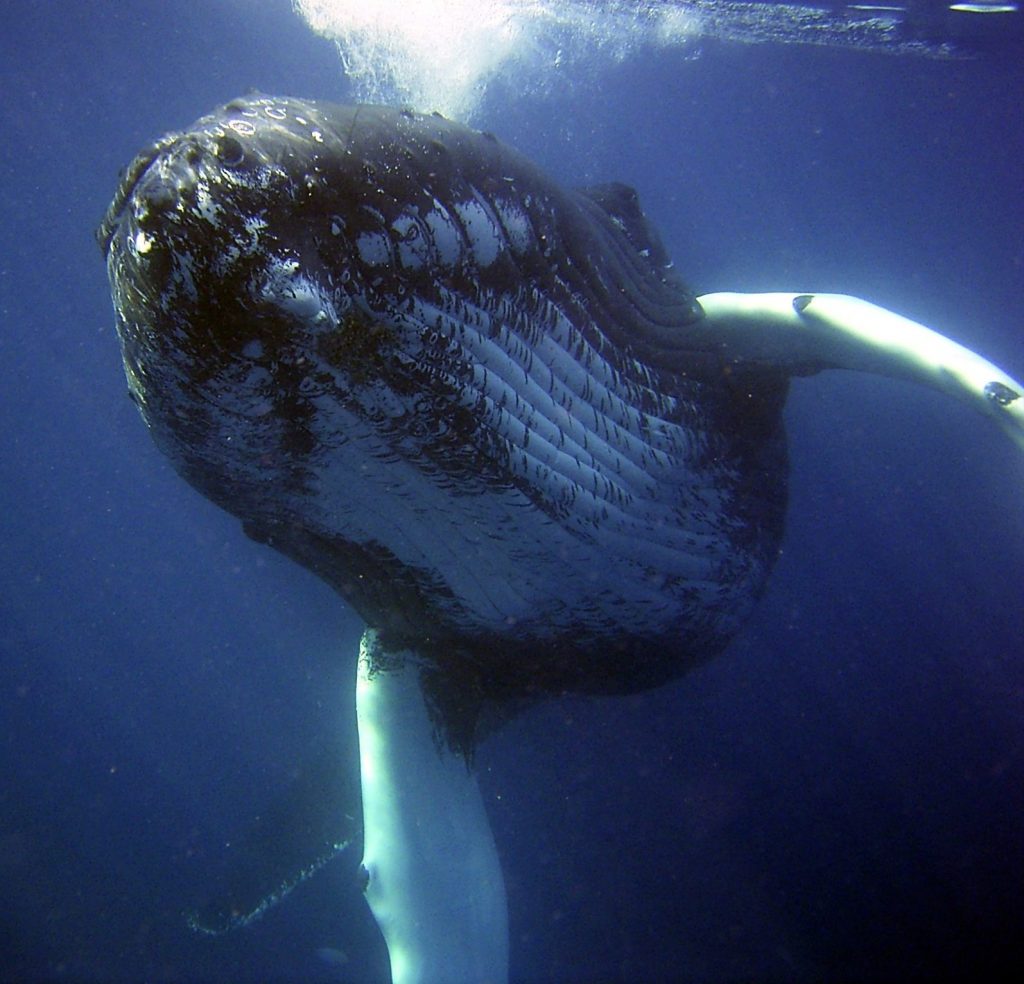
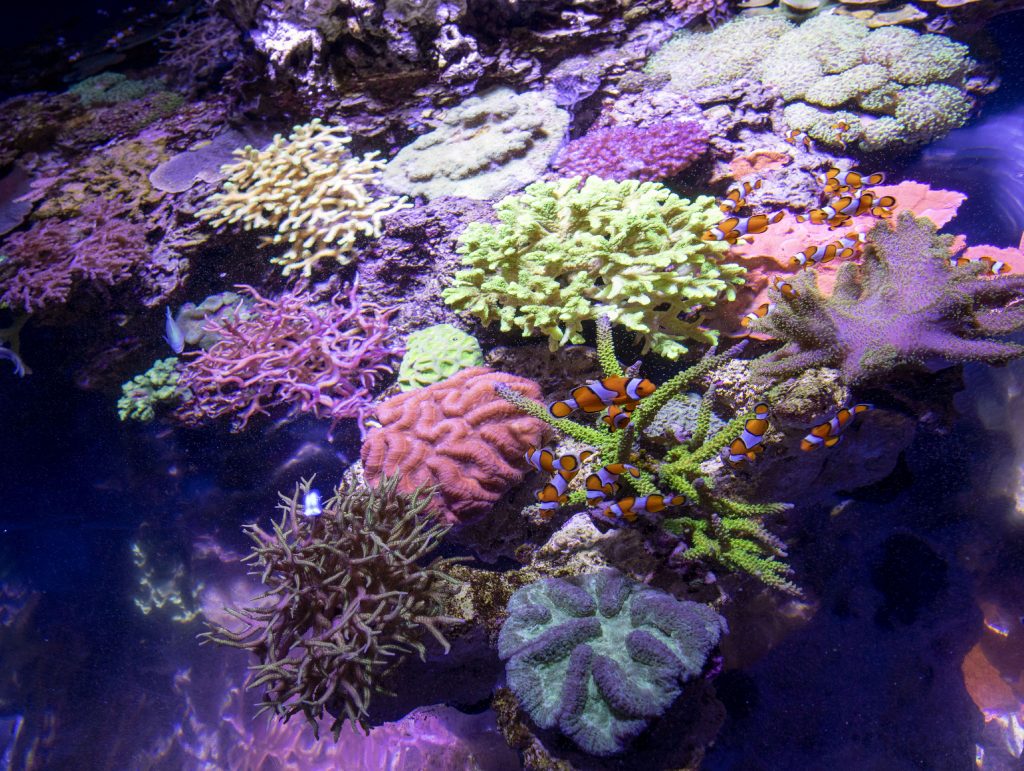
Les fiches Pédago : Corals
Coral reefs are true oases of life! They represent barely 0.2% of the world’s ocean surface and yet one third of the marine species known to date find refuge there. Each of these species is important to the maintenance of the reef.
Through these two game books (one for children and one for parents), discover the different types of coral reefs found in our oceans. Also learn about the threats to these reefs and how to fight and preserve this treasure of biodiversity.
LEs fiches pédago (part ii) : identifying marine turtles
Learn how to recognize the different species of sea turtles thanks to an “identification key”: a tool used by scientists to identify species thanks to their morphological characteristics.
Learn more by downloading these sea turtle identification keys!
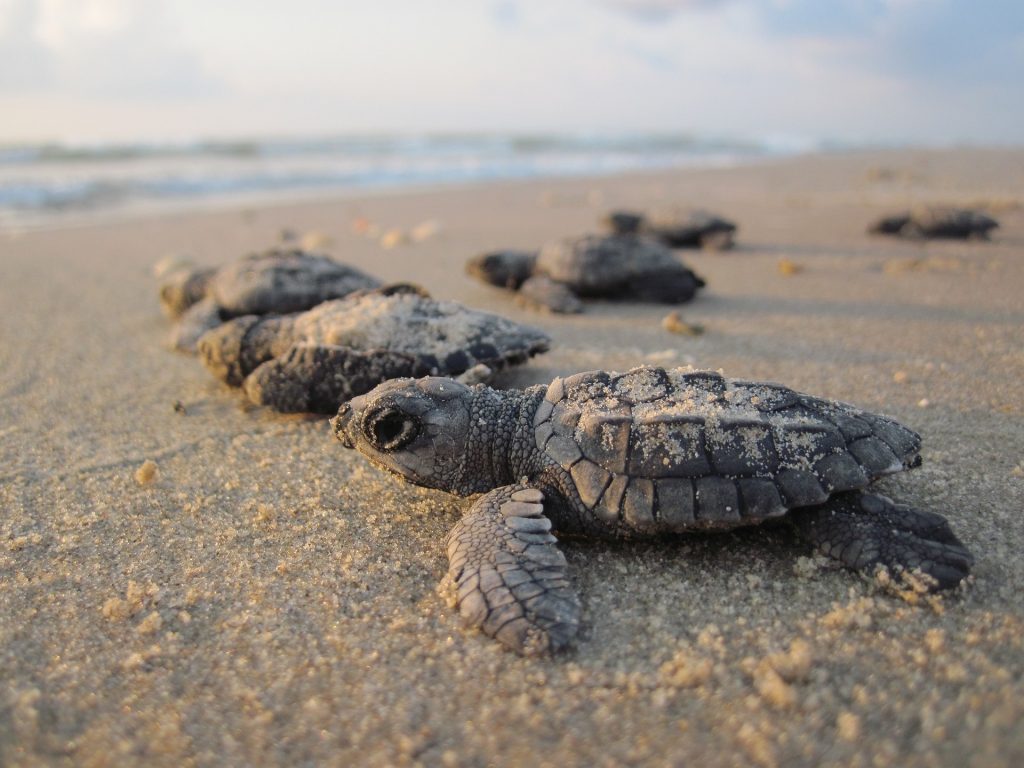
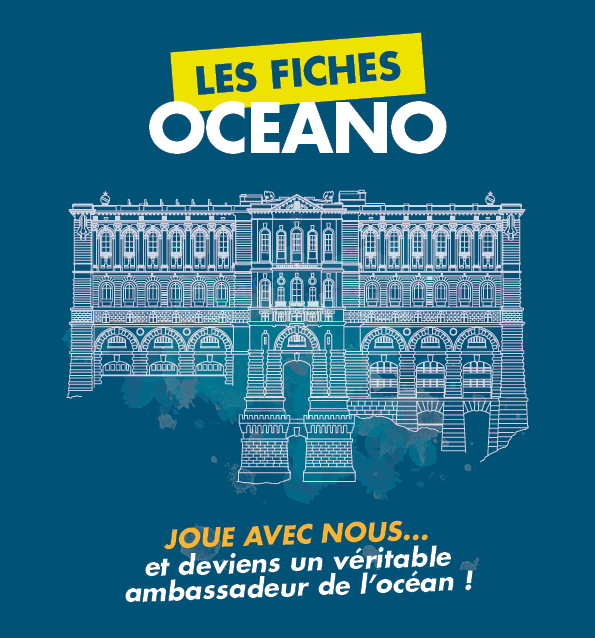
the pedago sheets (PART I) : turtles
Marine turtles have inhabited the seas for 110 million years and have gone through several climatic upheavals. Yet today, turtles are threatened on land and at sea. Where do they live? How to recognize them? How do they reproduce? What is their lifestyle?
You too can go and meet these animals and try to get to know them better and protect them through a game book (one for parents, one for children).
The colouring book
Download this special 0cean coloring book and let your little ones express their artistic soul.
All you have to do is sharpen the crayons and take out the markers!
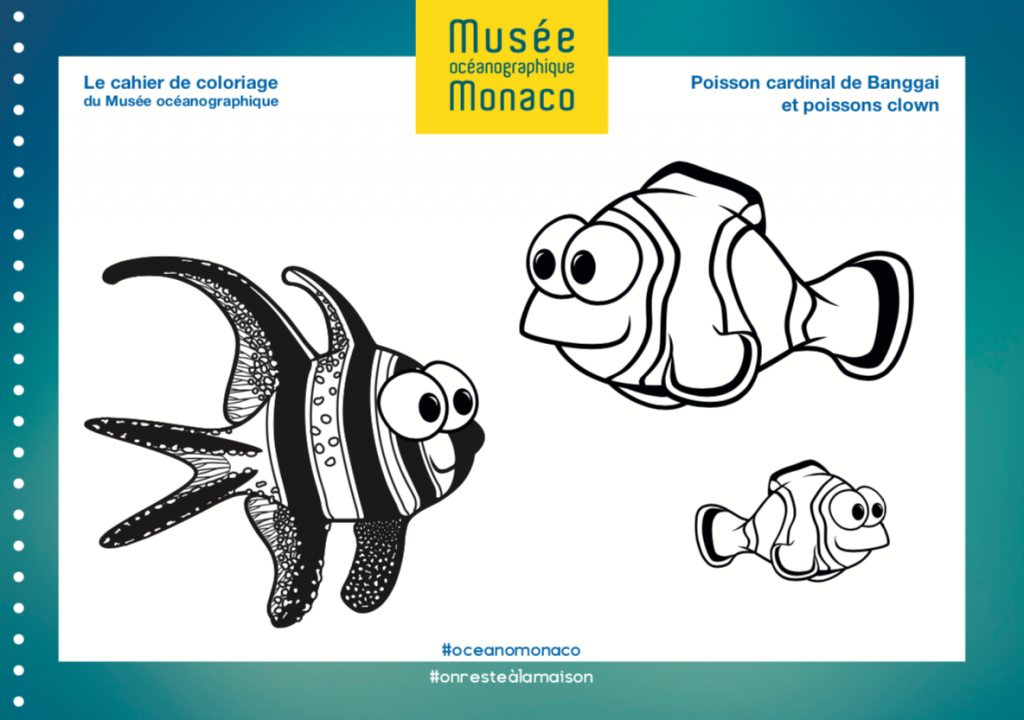
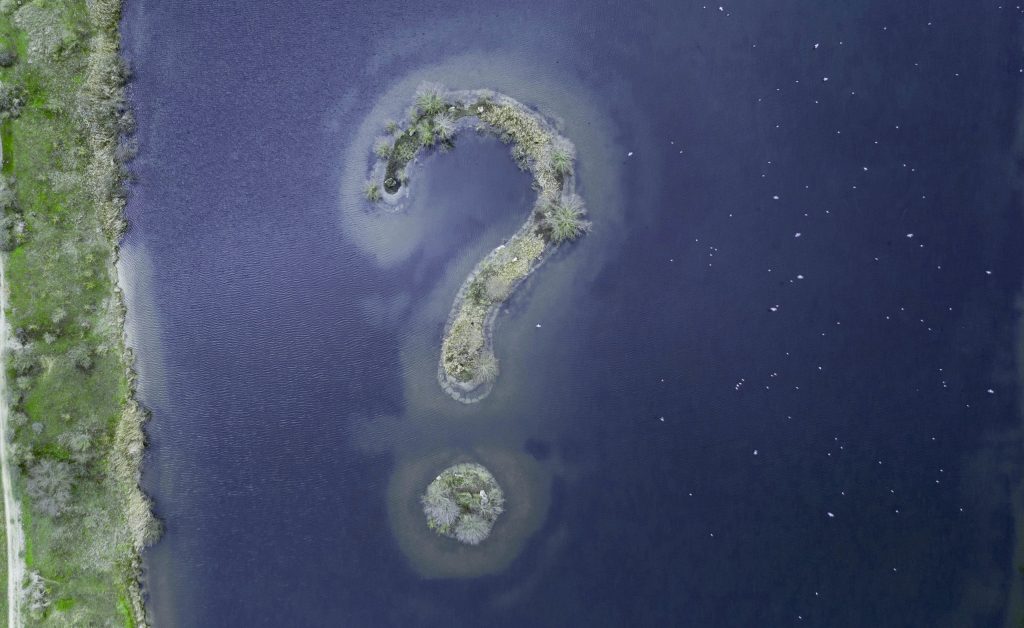
TO BE CONTINUED NEXT WEEK
Discover new contents in a week!
- Home
- Categories
- News from Maison des Océans - Paris
The closure of cultural venues and their major roles in our society and economy is more topical than ever. This Tribune explains the importance of the dialogue between Science and Culture to build the world of tomorrow. This is not just a question of economic activity; it is our openness and resilience in the face of the current crisis and in inventing the future that is at stake.
It istime to oppose the rebound of the epidemic and the economic crisis with a rebound of enthusiasm and imagination. Along with the economy, it is curiosity, discovery and creativity that must be revived so that we emerge stronger, better able to face the major environmental and social challenges.
To deconcentrate minds and rekindle the imagination, to take up the planetary challenges and prepare a more livable and exciting future, we are responding, because there is no future without Nature, nor a future without Culture.
A Tribune initiated by the Oceanographic Institute, published in the Journal du Dimanche, whose first signatory is H.S.H. Prince Albert II of Monaco, joined by 32 other international signatories from the worlds of science and culture: Laurent Ballesta, Charles Berling, Stéphane Bern, Sandra Bessudo, Robert Calcagno, Jean Chambaz, Xavier Darcos, Bruno David, Peter Herzig, François Houllier, Alexis Jenni, Murielle Mayette, Erik Orsenna, Vladimir Ryabinin, Enric Sala, Philippe Taquet, Valérie Verdier…
More articles

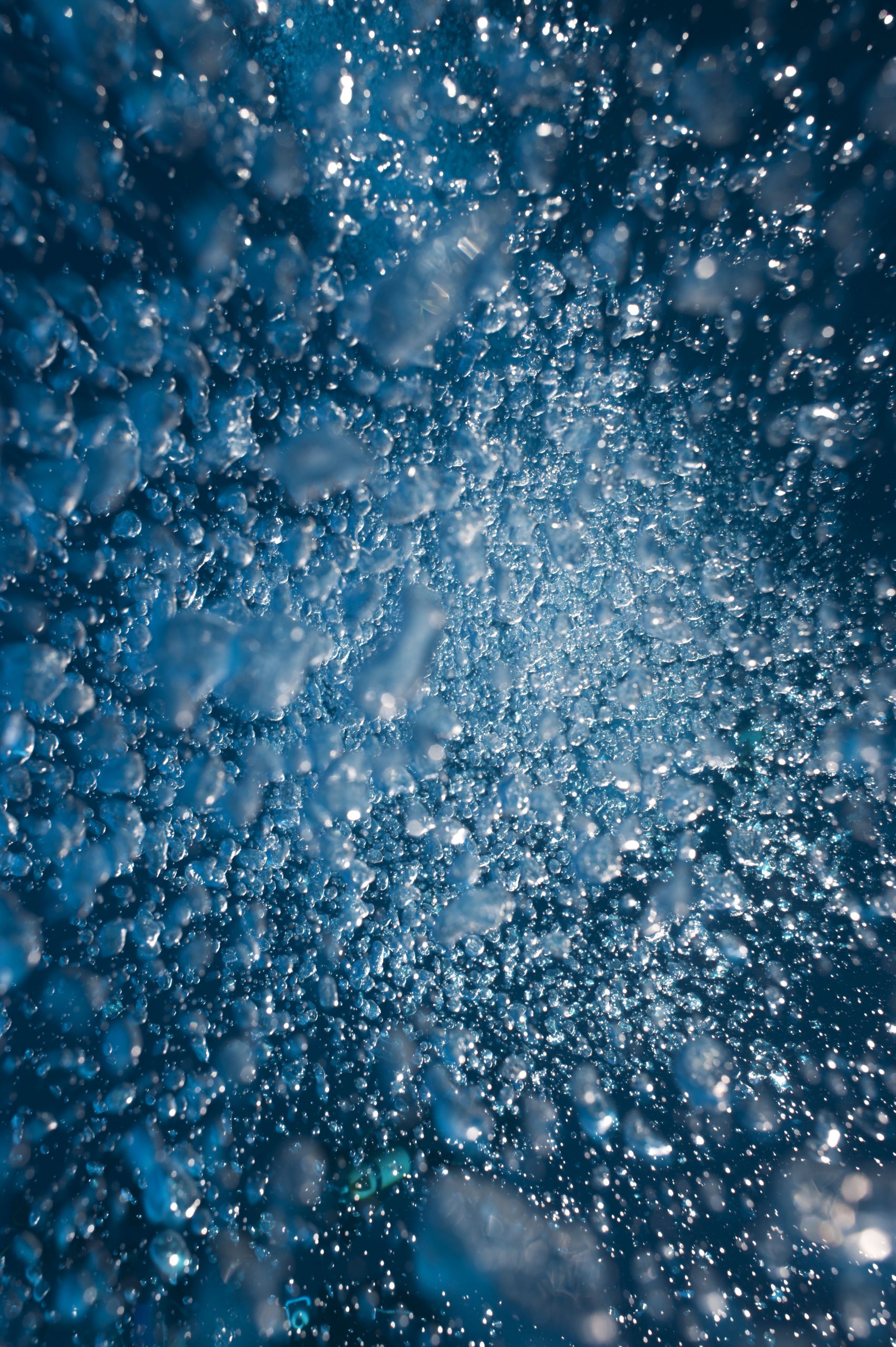
- 23/06/2020·
Evening with Jean-Louis Etienne and Alexis Jenni
February - Maison des Océans, Paris 5è
- Home
- Categories
- News from Maison des Océans - Paris
AN EXCEPTIONAL EVENING...
Jean-Louis Étienne and Alexis Jenni, both environmentally conscious, talk about their commitment and the figures that inspired them.
Alexis Jenni is the author of an unpublished biography of John Muir, a mythical figure of environmental protection, born in 1838, a visionary who was the first to perceive the dangers of the exploitation of nature.
Jean-Louis Étienne, polar explorer and great defender of the environment, has just published Aux arbres citoyens, an essay on his relationship with nature and his commitment.
Both will talk about ecology, the personalities that inspired them and will share with the public their view of the planet.
Free admission upon registration, subject to availability.
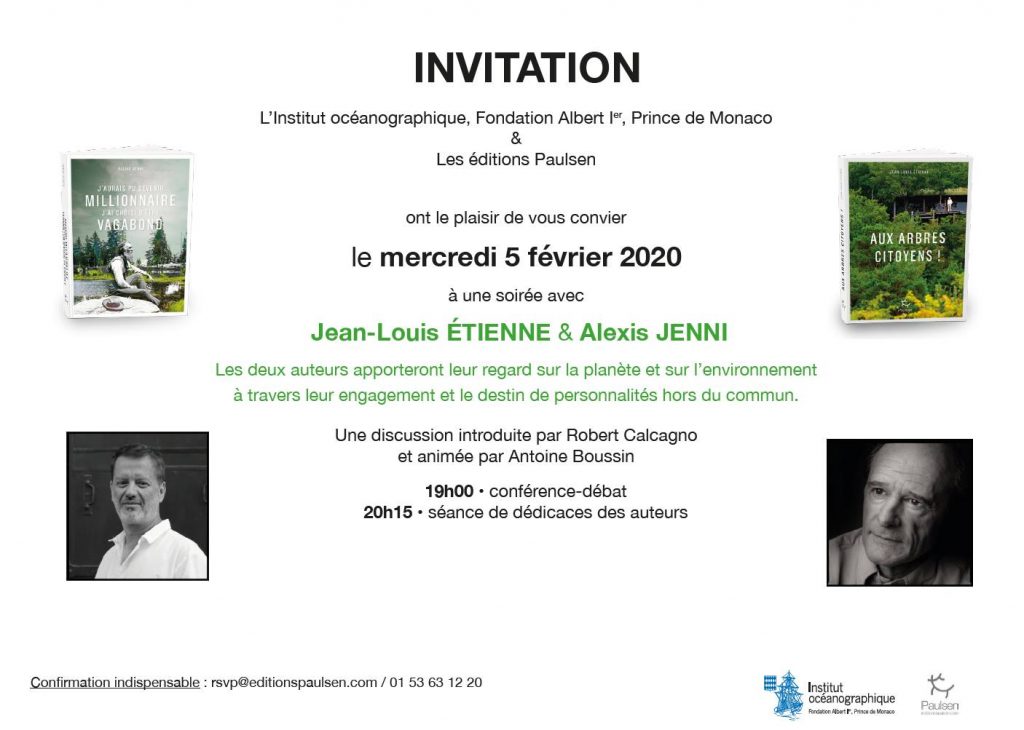
An evening organised jointly with Editions Paulsen
2049: the Ocean is a treasure worth preserving.
Speech on the Ocean
- Home
- Categories
- News from Maison des Océans - Paris

Tuesday 14 January 2020
Any reflection on our future leads us to the Ocean. This is where life appeared, where the survival of humanity is at stake. The ocean has always protected us, regulated the Earth’s temperature, absorbed CO2, provided oxygen, supplied us with vital resources and inspired our idea of time and space. But this world of silence, which was thought to be eternal and whose exploration we have not yet completed, is now threatened by our excesses. Before our eyes, the ocean is warming up, depopulating, plasticising…
What is the key role it plays, which is too often overlooked? What can be done to preserve it? How will we live the ecological transition thanks to products, materials and energy from the sea?
To answer these questions, L’Obs and the Oceanographic Institute have joined forces to provide answers with the best specialists at a unique conference to be held at the Maison des Océans in Paris.
Come and listen to the best specialists and debate with them
Tuesday, January 14, 2020 at 6:30 pm at the Maison des Océans in Paris, a facility of the Oceanographic Institute.

L'Obs and the Oceanographic Institute have invited the best specialists to discuss this issue and invite you to take part in this exceptional meeting!
This meeting is part of the “2049” cycle created by L’Obs.
This project attempts to explore our daily lives in 30 years.
How will we move, how will nature evolve, where will we live?
Futurologists, scientists, entrepreneurs and philosophers are trying to answer these and many other questions.(www.nouvelobs.com/2049)
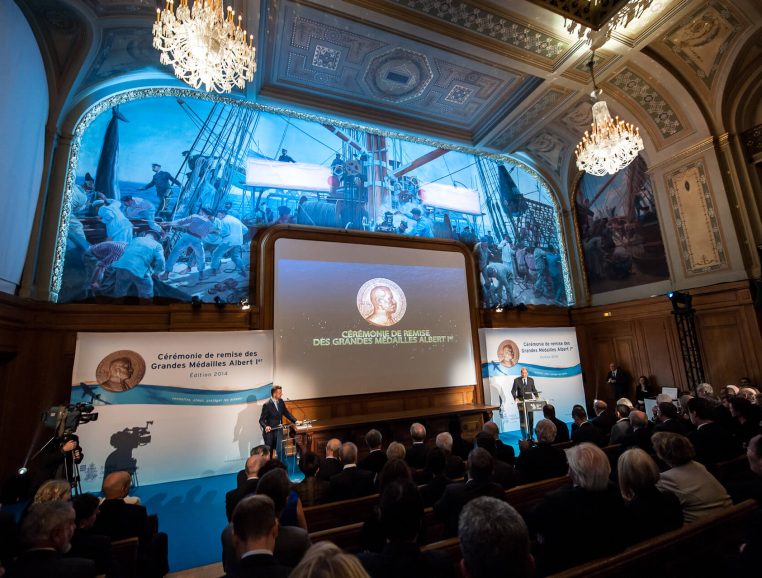

Facebook event to which anyone can invite their contacts
Wednesdy 16 January 2020 - Maison des Océans
- Accueil
- Categories
- News from Maison des Océans - Paris
For the second year in a row, the Ocean Innovation Trophies award ceremony will be held at the Maison des Océans (Paris) from 14:00 to 17:00 on 16 January, in partnership with the Oceanographic Institute, Prince Albert I Foundation and support from the maritime economy sector: the French Maritime Cluster, the Brittany and Atlantic Sea Hub and the Mediterranean Sea Hub.
The “Ocean Innovation Trophies” event is intended to promote the innovations that contribute to the sustainable management of the ocean.
The ceremony will be preceded by a presentation of the 14 innovations that have been shortlisted by a jury of professionals from the 60 applications received.
2 innovations are put forward in each of the following categories:
- Becoming familiar with the ocean in order to act effectively
- Protecting and regenerating biodiversity
- Preventing waste from land polluting the ocean
- Reducing pollution on the shoreline
- Using the ocean to generate useful energy for the planet
- Creating new propulsion methods for ships
- Harnessing the resources that only the ocean produces
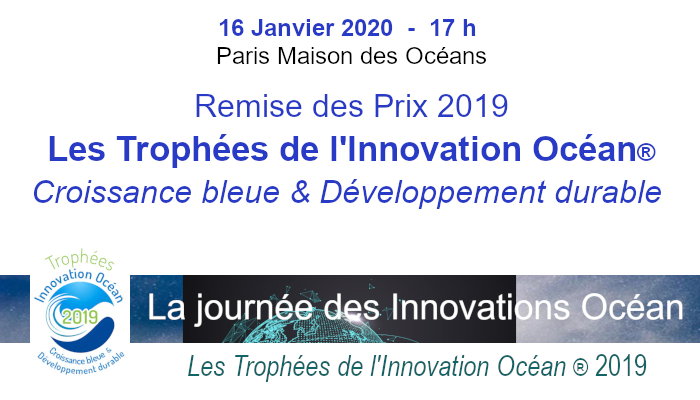

9 projects shortlisted
Category Becoming familiar with the ocean in order to act effectively
- Biodiversity observation buoy
- Antifouling protection for instrumental optics in marine environments
- Microdrone – Autonomous undersea vehicle
Category Protecting and regenerating biodiversity
- System for reducing bycatch of rays and sharks during fishin
Category Preventing waste from land polluting the ocean
- Anti-macro waste creels
- The distribution in developing countries of a machine to convert plastic waste to fuel via pyrolysis
- Identifying the origin of the plastic in the rivers of Europe via local authorities
Category Reducing pollution on the shoreline
- Harvesting and processing Sargassum seaweed
- Charter of undertakings for sustainable cruises in the Cannes Bay
Category Using the ocean to generate useful energy for the planet
- Massive offshore system for storing energy via compressed air
- Wave energy system generating electricity or fresh water
Category Creating new propulsion methods for ships to reduce CO2 emissions
- Auxiliary automated wind turbine propulsion system for ships, based on parafoil technology
- Nautical propulsion technology using an undulating membrane
Category Using the ocean’s resources sustainably
- Medical system for preserving organs, derived from lugworm haemoglobin
Autonomous solution for converting seawater to fresh water powered exclusively by solar energy.
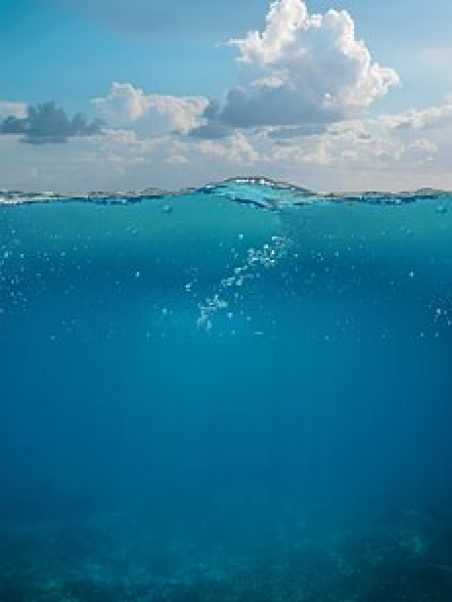
IPCC SPECIAL REPORT
Special report on the ocean and cryosphere in a changing climate
- Accueil
- Categories
- News from Maison des Océans - Paris
GIEC : 51st session in the Principality of Monaco
The Intergovernmental Panel on Climate Change (IPCC) held its 51st session in the Principality of Monaco on 20-23 September 2019, when it examined the Special Report on the Cryosphere in a Changing Climate (SROCC).
In the view of the IPCC, “Humanity depends directly or indirectly on the ocean and the cryosphere. Oceans cover 71% of the surface of the earth and represent 97% of the water on earth.”
The ‘cryosphere’ represents all the different components of the earth’s system that are frozen, on land and below ground, on the surface of the ocean and under the surface of the ocean. This includes snow cover, glaciers, the polar ice caps, ice floes (pack ice), icebergs, sea ice, ice in freshwater lakes and rivers, permafrost and seasonally frozen ground.
You can view a replay of the conference below.
WATCH LIVE - 11:00 CET ON WEDNESDAY 25 SEPTEMBER
25 September 2019: the results
The report was published at a press conference at the Oceanographic Museum de Monaco.
The IPCC in brief
The Intergovernmental Panel on Climate Change (IPCC) is an intergovernmental body that specialises in climate change sciences. It was created by the United Nations in 1998 and its aim is to provide political decision-makers with regular assessments of the state of scientific knowledge on climate change.
• Ocean & cryosphere in a changing climate (September 2019) : See Report (or click the button below to go to the IPCC website and access all its online resources)
The IPCC’s main assessment report comes out once every six years and separate special reports are released more frequently. Three special reports were published during the sixth and current assessment cycle:
• Global warming at 1.5°C (2018): https://www.ipcc.ch/sr15/
• Climate change and ground usage (August 2019): https://www.ipcc.ch/report/srccl/
The IPCC’s assessments are written by hundreds of international scientists, recognised for their expertise, before being submitted to the governments of the 195 member countries. The IPCC does not carry out its own scientific research, relying instead on existing publications.
The main challenges faced by human societies today are also associated with climate change [...]: the systemic effects of these phenomena have not spared a single area of the planet and constitute factors of environmental upheaval that exacerbate the imbalance in our oceans.”
S.A.S. le Prince Albert II de Monaco
The Prince Albert II Foundation (FPA2) acts in three priority fields:
- Limiting the effects of climate change and promoting renewable energies
- Preserving biodiversity
- Managing water resources and fighting desertification
Ocean and Climate Platform
Founded in 2014, the Ocean and Climate Platform (COP) is a coalition of scientists from different fields (researchers, NGOs, aquariums, French and international institutions, etc.).
It is the only French NGO to have participated in the editing of this new major report, and the COP now presents “Ocean and Climate Change: The Latest Challenges”, a booklet addressing 6 major themes tackled in this report: global warming, melting ice caps, rise in water levels, extreme events and deoxygenation.
An ocean in good health is a protected climate, and having a good understanding of these links of cause and effect is currently dictating our shift towards a sustainable world that respects all life.
• Spreading Knowledge sheets: Link to be added
• Scientific sheets: Link to be added
IO and POC: the IO is a founder member of the POC, is on its board of directors and is involved in compiling content.
VALERIE MASSON-DELMOTTE: UNDERSTANDING THIS REPORT
Valérie Masson-Delmotte, a climate expert, Co-Chair of an IPCC working group and member of the board of directors of the Oceanographic Institute, explains the links between the ocean and the climate.
Office for Climate Education (OCE)
Founded in 2018, the Office for Climate Education (OCE) aims to organise close international collaboration between scientific bodies, NGOs and educational institutions to educate present and future generations about climate change.
Below are the resources produced by the OCE to help gain a deeper understanding of the report:
• An educational guide to the resources of the ocean and the climate for primary and secondary school teachers. Link to be added
• Summary for teachers: Why issue a report about 1.5°C in warming?
• Training resources on the ocean and the climate.
• Training resources on the greenhouse effect: aimed primarily at teacher trainers.
The Oceanographic Institute aims to use communication campaigns to promote the OCE’s tools produced in connection with the ocean and climate change.
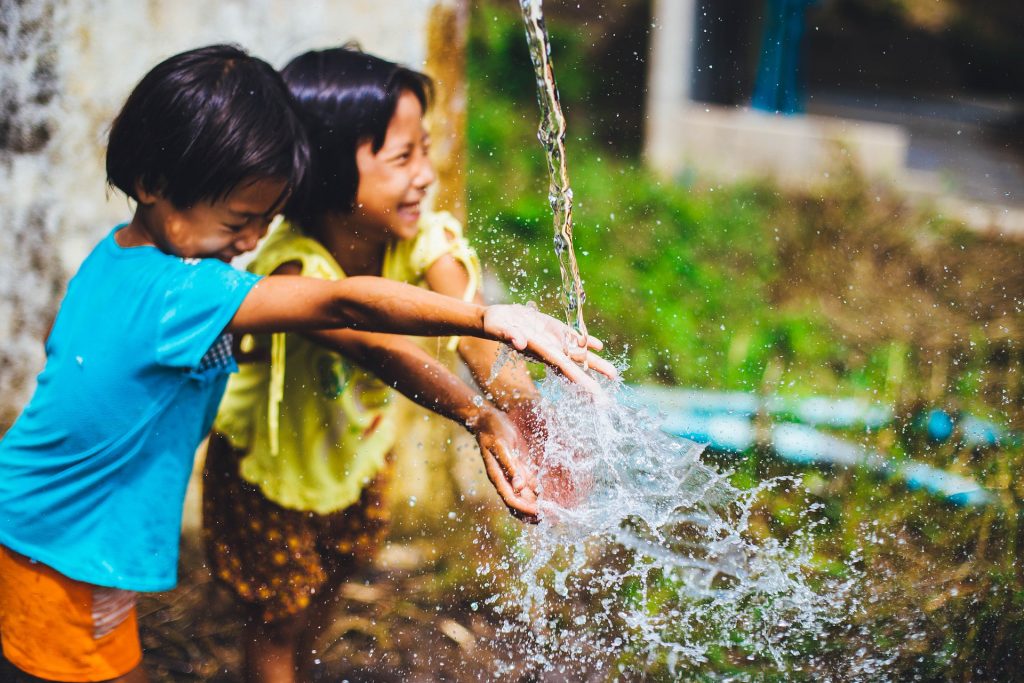
Feedback
We want people to remember that the issue is a serious one, but that we can do something to make progress and face the challenges. France has set itself the objective of becoming carbon-neutral by 2050, and for the time being emissions are not falling quickly enough.
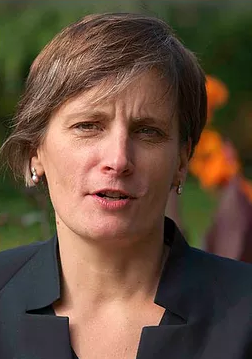
H.S.H. Prince Albert II of Monaco
Speech about the Ocean
- Home
- Categories
- News from Maison des Océans - Paris
For the centenary celebrations of the International Union of Geodesy and Geophysics, at the headquarters of UNESCO in Paris, His Majesty the Prince Albert II, was the honoured guest and was awarded with the status of Member of Honour, and so he gave a speech.
United Nations General Assembly - 24 Sept. 2019
the principality committed to the climate
The Government of Monaco is committed to carbon neutrality and is giving itself the means to achieve it, declared Prince Albert II at the United Nations General Assembly. In his speech, the Sovereign also emphasized the role of forests and even more so that of the ocean. Monaco has “historically chosen to support science,” he added.
Climate change and the collapse of biodiversity, far from being isolated crises, are two alarming symptoms of the Antrhopocene that need to be addressed in synergy.
- Paris, UNESCO Headquarters - 29 July 2019
Centenary of the International Geodetic and Geophysical Union
The ardent need to protect the ocean has succeeded the time of discovery and knowledge of the seas, which was that of my great-great-grandfather.
Monaco strives to continue to follow his will and to make his legacy fruitful by updating his message.
Through its own initiatives as well as by proposing to its partners to relay and amplify their own actions, the Principality strives to be a “voice of the ocean”…
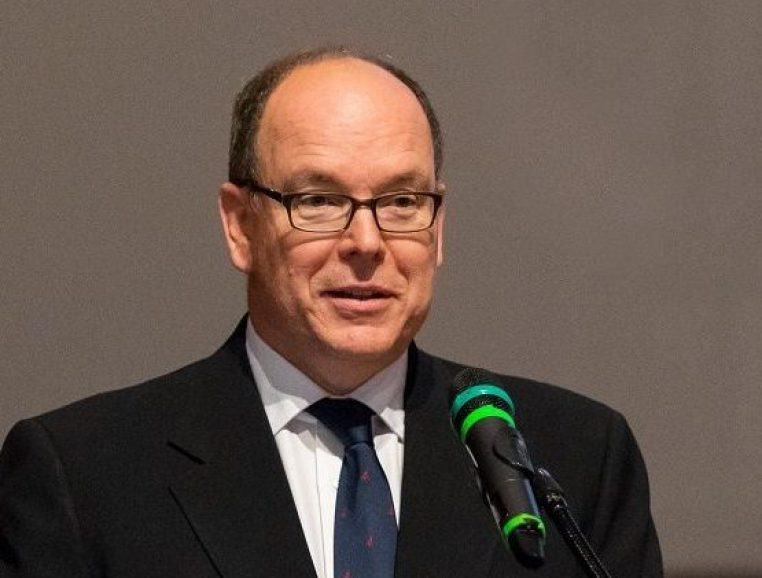
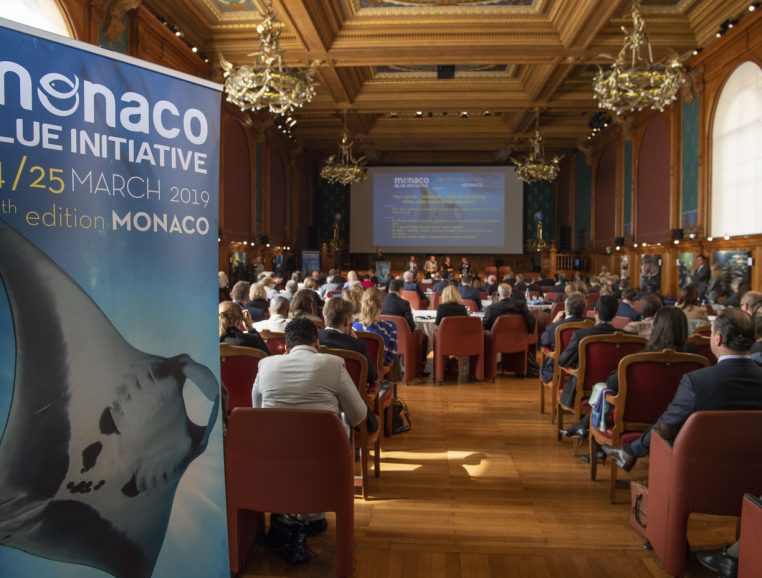
- Monaco Blue Initiative, 25 March 2019
opening of the MBI #10
There is a phrase by the great historian Jules Michelet that often comes to mind when I enter this Oceanographic Museum, which is right here on the Mediterranean.
“It is with the sea that all geography should begin”.
We also know that it is with the sea that all history must begin, for we know that we were born of the ocean and that our civilizations were born of the sea.
But it is also by the sea, more and more, that any economy should start.
I am sure that all politics, morals and philosophy will have to begin more and more with the sea.
- Monaco, Oceanographic Museum, 16 April 2019
Meeting of European Oceanography Centres
I think it is necessary, as you said, to develop a better understanding of the general public [sur les questions des sciences de l’océan]. People like information that tells a story, and if we can draw their attention to different ways of telling that story, and in a more engaging way, I think that would certainly help.
Listen to the recorded speech in English.
- Ecouter le discours (anglais) 00:00
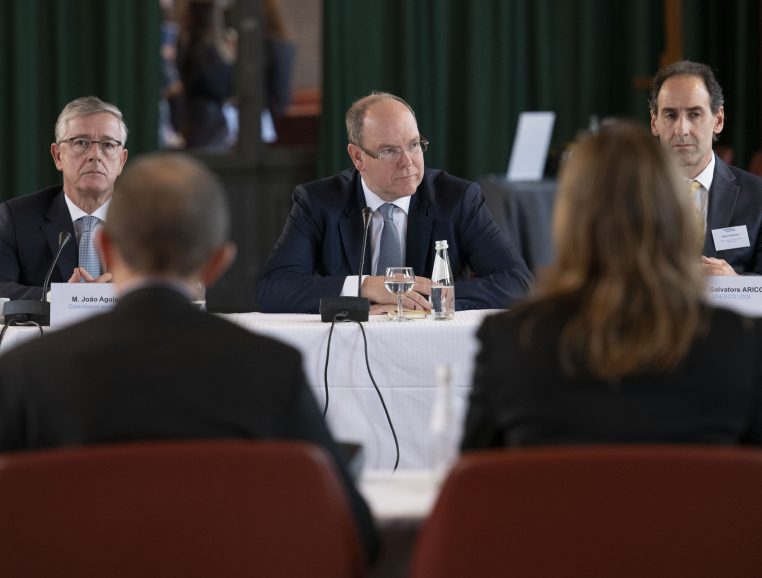
- New York, UN Headquarters, June 2017
Speech on the Sustainable Development Goals for the Ocean
At a time when the international community is looking at the oceans and stating the principle of an essential collective responsibility towards them, I cannot help but think of the phrase attributed to Aristotle, with which we are all familiar: “There are three kinds of men: the dead, the living and those who go to the seas”, a phrase that sums up the situation of our seas, which for too long have seemed to escape the common laws of humanity.
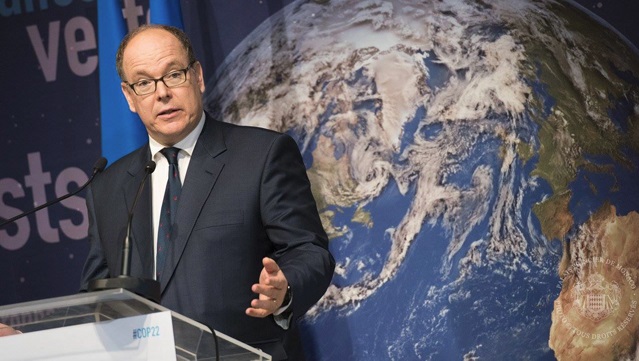
- Marrakesh, 12 November 2016
COP 22 Meeting - Marrakesh
Since the world is now ready to be concerned about the seas, to invent a new way of living with them, it is our duty to propose concrete, useful and effective solutions, which alone will make it possible to preserve them, and thus preserve their indispensable capacity to mitigate climate change.
ALSO TO BE SEEN
Speech by H.S.H. Prince Albert II of Monaco, on the occasion of the 74th session of the Marine Environment Protection Committee, London – 13 to 17 May 2019, International Maritime Organization.
Address by H.S.H. Prince Albert II of Monaco to the Director-General of UNESCO at the First Planning Meeting of the UN Decade of Ocean Sciences for Sustainable Development







